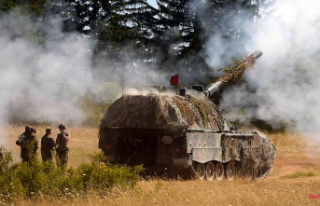With the increased rocket attacks by Russia on the Ukrainian power supply, fear of attacks on critical infrastructure is also growing in Germany. The traffic light coalition around Interior Minister Faeser now wants to strengthen the protection of all affected sectors.
Since the beginning of the Ukraine war, the vulnerability of critical infrastructure in Germany has come to the fore - Federal Minister of the Interior Nancy Faeser now wants to strengthen its protection: Key points for a new umbrella law provide, among other things, that there be "uniform minimum requirements for resilience measures in all sectors". target. A new reporting system is planned for problems.
The paper is entitled "Key points for a KRITIS umbrella law" - "KRITIS" stands for critical infrastructure. The federal government includes "organizations or institutions of major importance for the state community, whose failure or impairment would result in lasting supply bottlenecks, significant disruptions to public safety or other dramatic consequences". Classic examples are the supply of energy, water and food as well as emergency services.
According to the key points, what exactly is to be understood as critical infrastructure in the future should be clearly defined. It involves at least eleven sectors: "Energy, transport, banking, financial market infrastructure, health, drinking water, wastewater, digital infrastructure, public administration, space, production, processing and distribution of food". Uniform minimum requirements would be introduced for the "physical" protection of critical infrastructures. These are to be implemented, for example, by erecting fences and barriers, access controls, security checks, but also by diversifying supply chains.
According to the paper, there should also be "government risk assessments", which in turn "give the operators a basis for their own specific risk assessments to be carried out regularly and the measures based on them". According to the plans, such assessments will be "conducted regularly at least every four years".
The "introduction of central fault monitoring" is also planned in order to get an "overall overview of possible weak points in the physical protection of critical infrastructures". "By reporting security incidents, other critical infrastructures affected by the security incident, including those in other Member States, can be warned."
With the planned innovations, the Federal Office for Civil Protection and Disaster Assistance will have additional tasks: It is to become the "overarching competent authority for the physical protection of critical infrastructures". Among other things, security incidents are to be reported to the BBK.












